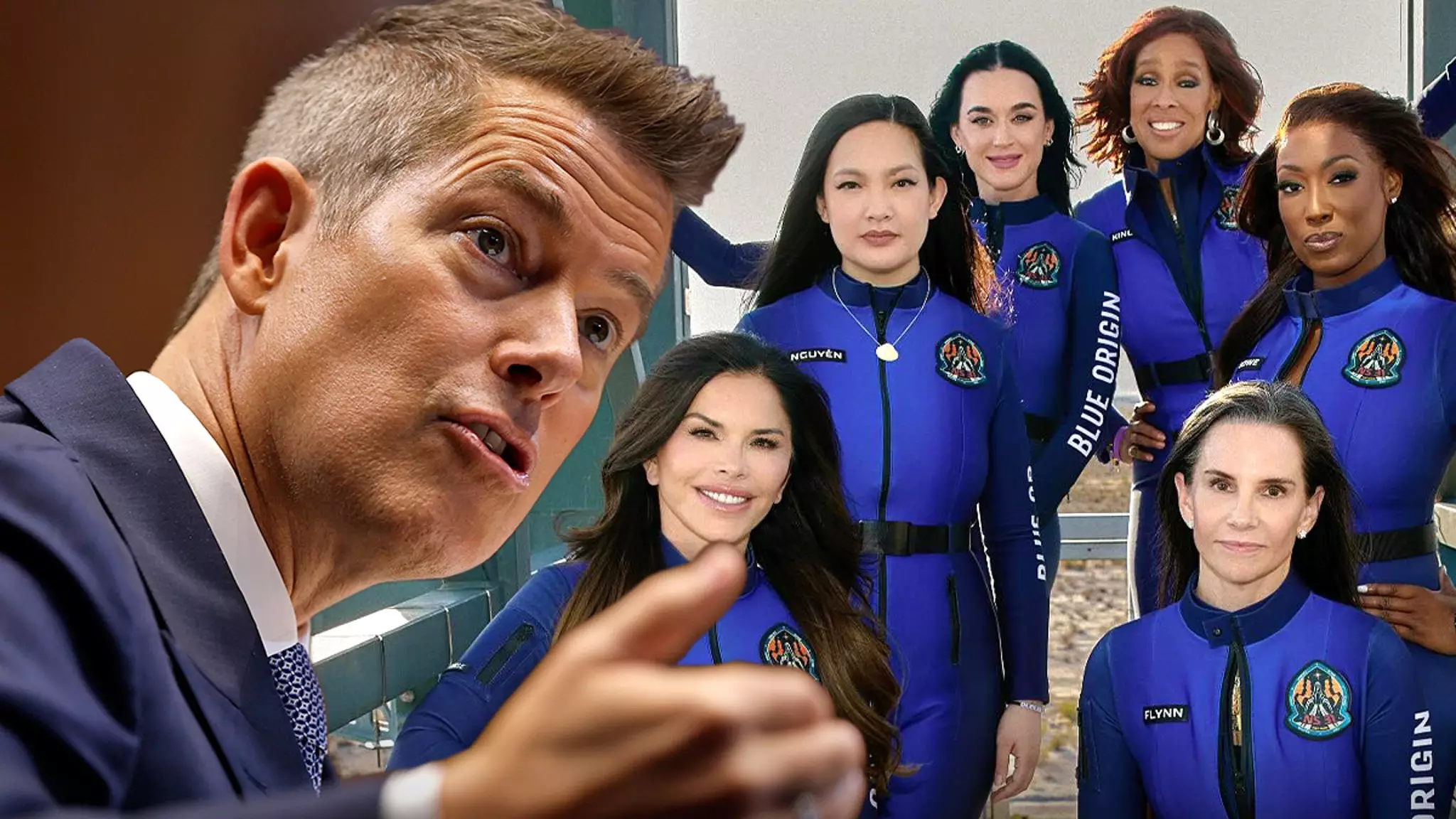In recent discussions surrounding the very nature of space travel, the definition of an astronaut has come under scrutiny. The debate sparked when a group of notable women, including Katy Perry and Gayle King, made an 11-minute foray into space via Blue Origin. However, U.S. Transportation Secretary Sean Duffy slammed the label of “astronaut” onto these celebrities, arguing that they lacked the qualifications typically associated with this noble title. Duffy’s comments have ignited a fervent discourse about what it truly means to be an astronaut and whether recent advancements in commercial spaceflight diminish the significance of this landmark achievement.
The Federal Aviation Administration (FAA) has specific criteria that must be met to classify an individual as an astronaut. According to these guidelines, mere participation in a space flight isn’t sufficient; the individual must also conduct activities that significantly contribute to flight safety. This regulatory framework aims to preserve the integrity and seriousness of space travel, ensuring that astronauts are not only adventurers but also guardians of human safety. However, the issue of altitude and its significance poses further complications. Although the women did exceed the internationally recognized boundary of space at 62 miles, their lack of technical involvement has become the crux of the debate.
The Glamour vs. Grit of Space Exploration
The very branding of “celebrity astronauts” throws into question the motivations behind such expeditions. Critics have decried these trips as extravagant and wasteful, arguing that they serve as marketing maneuvers rather than substantial contributions to humanity’s understanding of space. Prominent voices in the celebrity sphere, including Emily Ratajkowski and Olivia Munn, have voiced their disapproval, highlighting the financial disparities faced by average Americans. With soaring inflation rates leading to skyrocketing prices for basic goods, the dichotomy between the privileged elite who venture into space for leisure and those struggling on Earth raises the question of moral responsibility in this new age of commercial spaceflight.
Supporters of the flight, like Gayle King, contend that such exploits can draw attention to the scientific advancements being made by companies like Blue Origin. They argue that the endeavor doesn’t detract from pressing issues on Earth; instead, it can serve to inspire a new generation interested in science and engineering. However, this is a delicate balance, and it’s essential for industry leaders and celebrities to acknowledge the broader implications of their actions.
Scientific vs. Commercial Objectives
As the private sector increasingly takes the reins in space exploration, a clear distinction between scientific pursuits and commercial interests becomes imperative. The original Astronaut Wings program, initiated in 2004, intended to celebrate the pioneering spirit of human spaceflight. However, as the industry evolves, so too should the criteria for recognition. Does the commercialization of space travel dilute the essence of what it means to explore? Or does it democratize access to the great beyond, providing thrilling opportunities for those who may not have had the means or credentials before? The answers are complex and multifaceted.
Indeed, while the criticism of “glamorous” flights may resonate with some, it is equally essential to recognize the role that non-traditional figures might play in broadening the narrative of space exploration. As more diverse voices enter the conversation, they can highlight issues of accessibility, environmental impact, and ethical considerations that might otherwise fall through the cracks.
The Emotional and Cultural Significance of Space Travel
Beyond the technicalities lies a profound cultural significance associated with traveling to space. This is not just about who holds the title of astronaut; it’s about human ambition, the quest for knowledge, and the realization of dreams long deemed unattainable. As more individuals, regardless of their backgrounds, embark on these journeys, they carry the weight of human curiosity and exploration. These flights can be a bridge between the old paradigms of astronaut training and a new era where everyone has a chance to contribute to the narrative of space travel.
Critics often engage in a conversation steeped heavily in economic terms, yet it’s crucial to recognize the emotional aspect as well. For many, the sight of Earth from space is transformative—a perspective that can instill a renewed sense of purpose and responsibility toward our planet. It broadens the horizon, both literally and metaphorically, and could potentially inspire movements for environmental conservation and global unity.
In a world increasingly divided by economic disparity, the dialogue surrounding space travel and astronaut status extends far beyond technical qualifications. It becomes a reflection of our aspirations, our ethics, and our responsibilities. And in many ways, it’s just as vital to consider who gets to decide what “counts” in the broader narrative of human exploration.

